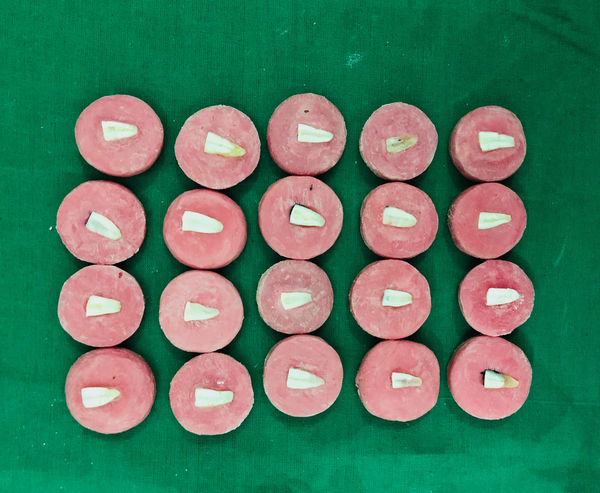-
Home
-
About JCTR
-
Gold Open Access
-
Issues
-
Editorial board
-
Author guidelines
-
Publication fees
-
Online first
-
Special issues
-
News
-
Publication ethics
-
Partners
-
Submit your manuscript
-
Submit your review report
-
Editorial Office
-

This work is licensed under a Creative Commons Attribution-NonCommercial 4.0 International License. ISSN print: 2382-6533 ISSN online: 2424-810X
Volume 7 Issue 1
Comparative evaluation of Chloroquick with Triphala, sodium hypochlorite, and ethylenediaminetetraacetic acid on the microhardness of root canal dentin: An in vitro study
Vaishnavi Elika, Divya Kunam*, Lavanya Anumula, Suneel kumar Chinni, Kiranmayi Govula
Elika et al. J Clin Transl Res 2021; 7(1):3
Publishing online: January 21, 2021
Abstract
Background: Irrigating solutions used for the elimination of micro-organisms during root canal preparation affect the chemical and physical properties of dentin, thereby rendering the tooth more prone to fracture. Therefore, the careful and judicious selection of irrigant is required which have maximum benefits with minimum undesirable properties.
Aim: The study aimed to compare and evaluate the effect of Chloroquick with composition of 18% etidronic acid+ 5% Sodium hypochlorite (NaOCL) with other irrigants like Triphala, NaOCL and Ethylenediaminetetraacetic acid (EDTA) on the microhardness of root canal dentin.
Methods: Forty freshly extracted noncarious single rooted human teeth were collected and decoronated at CEJ to standardize the canal length. The roots were sectioned longitudinally to get two halves. Baseline microhardness evaluation was done using Vickers microhardness test prior to the immersion in irrigants; Samples were then randomly divided into four groups (n=20), based on the irrigant used as follows, Group1- Saline; Group 2- 5% NaOCL +17% EDTA; Group 3-Triphala; Group 4 -Chloroquick. Later the samples were immersed in the irrigating solutions for 15 minutes at 37ºC for each group and were then subjected to Post-treatment microhardness testing. Microhardness values were recorded and statistically analyzed using one-way ANOVA and Intergroup comparison with Post hoc Tukey test (P<0.05)
Results: The results of the present study showed that all the tested specimens showed a decrease in the microhardness values following application of different irrigating solutions except the control group. The use of Triphala and Chloroquick has minimal effect on the microhardness of root canal dentin post-treatment when compared with 5% NaOCL and 17% EDTA.
Conclusions: Chloroquick, as well as 0.005% triphala, can be used safely as an irrigating solution with less detrimental effects on the hardness of root dentin.
Relevance for patients: The newer irrigant Chloroquick shows less effect on dentin microhardness, thereby reducing the incidence of root fractures in patients postoperatively.

DOI: http://dx.doi.org/10.18053/jctres.07.202101.003
Author affiliation
Conservative Dentistry and Endodontics, Narayana Dental College and Hospital. Chintareddypalem, Nellore, India
*Corresponding author
Divya Kunam
Narayana
Dental College and Hospital, Chintareddypalem, Nellore
Tel: +91 9566053135
E-mail: kunam.divya@gmail.com
Handling editor:
Michal Heger
Department of Pharmaceutics, Utrecht University, the Netherlands
Department of Pharmaceutics, Jiaxing University Medical College, Zhejiang, China

